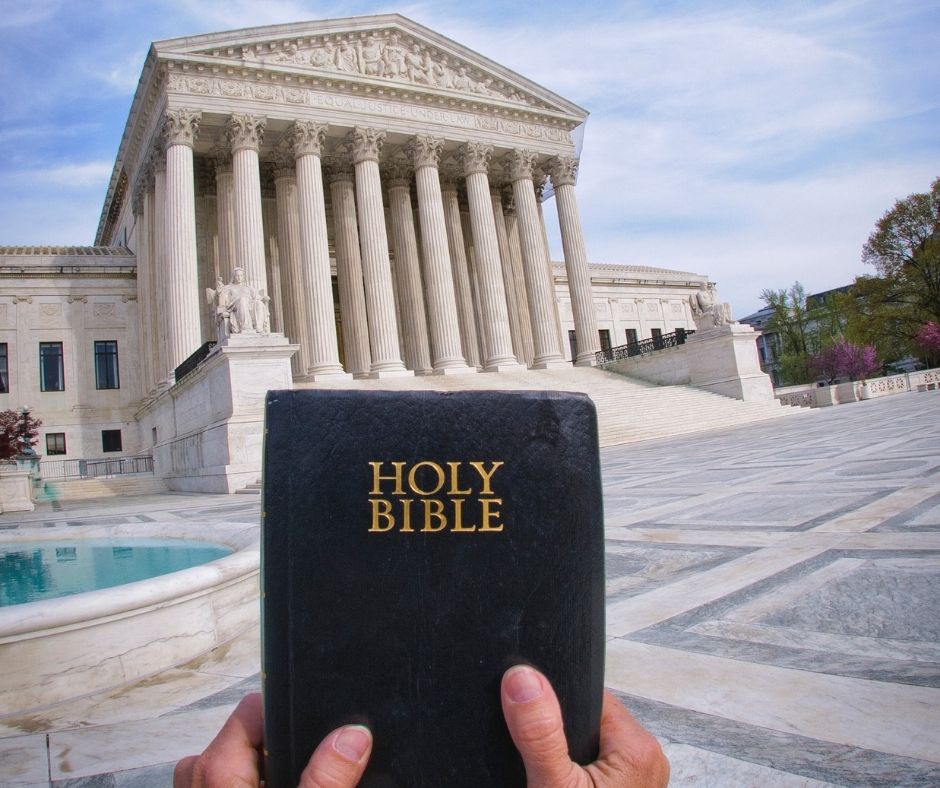Liberty Counsel filed an amicus brief to the U.S. Supreme Court in a religious discrimination employment case on behalf of a former postal carrier who was forced to quit his job at the U.S. Postal Service (USPS) for not working on Sundays, which he considers to be a day of worship and rest where work is prohibited, according to his Christian faith. Liberty Counsel is asking the High Court to overrule its previous 1977 “undue burden” de minimis standard from Trans World Airlines, Inc. v. Hardison and restore Title VII of the Civil Rights Act of 1964’s protection against religious discrimination to its intended role in America’s framework. There is no reason under Title VII to treat discrimination on account of religion different than race or sex discrimination.
The questions presented in Gerald Groff v. Louis DeJoy, Postmaster General, United States Postal Service are:
1. Whether the High Court should disapprove the more-than-de-minimis-cost test for refusing Title VII religious accommodations stated in Trans World Airlines, Inc. v. Hardison;
2. Whether an employer may demonstrate “undue hardship on the conduct of the employer’s business” under Title VII merely by showing that the requested accommodation burdens the employee’s co-workers rather than the business itself.
Liberty Counsel’s brief in Gerald Groff v. Louis DeJoy, Postmaster General, United States Postal Service argues that the High Court should restore Title VII of the Civil Rights Act of 1964 as the preeminent civil rights statute that Congress intended. In addition, SCOTUS should overrule the interpretation in Trans World Airlines, Inc. v. Hardison that Title VII does not require an employer to accommodate an employee’s religious beliefs if doing so would impose more than a de minimis burden. Hardison’s de minimis test clearly imposes unique – and unlawful – burdens on religious discrimination claimants.
Groff previously worked overseas as a missionary. When he returned to the United States, he looked for a job where he would not have to work Sundays. Considering “Sunday” to be the “Sabbath,” Groff believes it is his sacred obligation to “remember the Sabbath day, to keep it holy” and to follow the commandment “six days you shall labor, and do all your work, but the seventh day is a Sabbath to the Lord your God” (Exodus 20:8-10). In 2012, Groff became employed as an auxiliary USPS postal carrier in Lancaster County, Pennsylvania.
However, USPS contracted in 2013 with Amazon to deliver packages and employees were required to take Sunday shifts for weekend deliveries. Groff then asked for a religious accommodation. The postmaster granted his request, and Groff agreed to work extra shifts during the week. He even transferred to another branch that did not deliver on Sundays and accepted a lower position to be able to abide by his faith. Then USPS changed its position, took away the religious accommodation and started scheduling him to work Sundays. Being forced to choose between his faith and his job, Groff had no choice but to resign in 2019.
Groff sued USPS under Title VII of the Civil Rights Act of 1964, claiming USPS failed to reasonably accommodate his religion because the shift swaps did not fully eliminate the conflict. The district court concluded the requested accommodation would pose an undue hardship on USPS and granted summary judgment for USPS. The U.S. Court of Appeals for the Third Circuit affirmed.
Title VII prohibits an employer from discriminating against an employee on the basis of religion unless the employer is unable to reasonably accommodate the employee’s religious exercise without undue hardship to its business. However, according to a standard set forth in Trans World Airlines, Inc. v. Hardison, accommodation is not required if it imposes more than de minimis cost on the employer.
Liberty Counsel’s brief argues that Hardison’s de minimis test makes a mockery of Title VII and discriminates against religion. Hardison’s de minimis test requires only de minimis cost to excuse religious discrimination instead of protecting employee’s religious rights.
As Justice Gorsuch noted in Small v. Memphis Light, Gas & Water, “Title VII’s right to religious exercise has become the odd man out…. Hardison’s mistake here is of the Court’s own making—and it is past time for the Court to correct it.”
Liberty Counsel Founder and Chairman Mat Staver said, “Americans with sincerely held religious beliefs should not be forced to choose between their faith and their job. Title VII of the Civil Rights Act requires employers to reasonably accommodate employees who have sincere religious beliefs. However, a bad precedent regarding ‘undue burden’ was given by the High Court in the 1977 case of Trans World Airlines, Inc. v. Hardison. Now it is time for the High Court to overrule that bad precedent and restore Title VII to its rightful place as originally intended.”
















